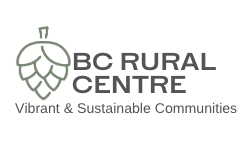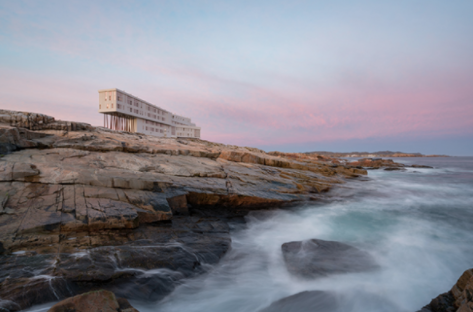
Small, Remote — and Successful!
Small can be beautiful.
Remoteness and rugged surroundings are often cited as negatives in discussions regarding rural communities and regions.
But there are cases where these apparent challenges are turned into positives.
Mountain Trek, a boutique health & wellness destination in BC’s West Kootenay region, and Newfoundland’s Fogo Island Inn stand as highly successful examples of turning what are normally considered disadvantages into an advantage. And in the process, having a significant impact on the remote rural communities where they’re located.
Mountain Trek, Ainsworth Hot Springs, BC
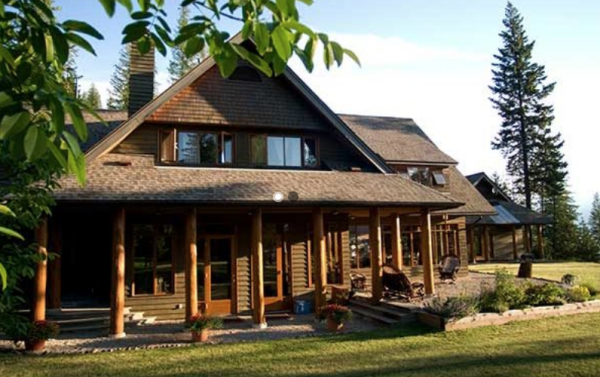
 Perched on a mountainside looking out over 130 km-long Kootenay Lake, tiny, remote Mountain Trek is consistently touted as one of the most desirable spa retreats in the world. Named #1 International Destination Spa by the Travel + Leisure World’s Best Awards, Mountain Trek also won “Best in Canada” in Spafinder’s 2016 Global Wellness Travel Awards, and was ranked “#1 Top Resort in Canada” in Condé Nast Traveler’s 2017 Reader’s Choice Awards.
Perched on a mountainside looking out over 130 km-long Kootenay Lake, tiny, remote Mountain Trek is consistently touted as one of the most desirable spa retreats in the world. Named #1 International Destination Spa by the Travel + Leisure World’s Best Awards, Mountain Trek also won “Best in Canada” in Spafinder’s 2016 Global Wellness Travel Awards, and was ranked “#1 Top Resort in Canada” in Condé Nast Traveler’s 2017 Reader’s Choice Awards.
The idea behind Mountain Trek is simple: stressed, anxious, out of shape, overweight urbanites will pay handsomely to tackle these issues, in the proper setting. And “proper” in this case means West Kootenay near-wilderness, in a charming timber frame lodge, six hours from the nearest major airport, underpinning a program that draws heavily on local mountain culture.
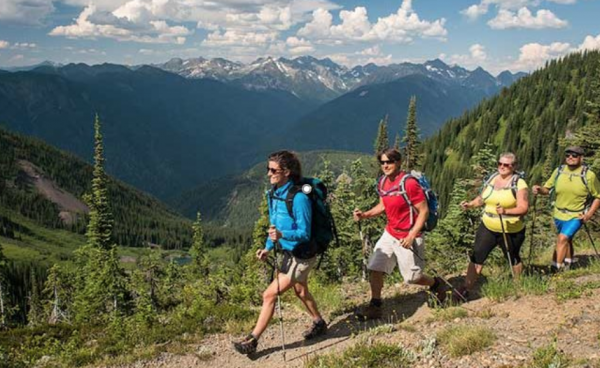
The Mountain Trek program is designed to reduce stress, reset guests’ metabolisms, and promote sustainable, healthy weight loss. Carefully prepared meals, yoga, lectures, and rigorous hikes and ski tours in the surrounding mountains ensure city dwellers return to their daily lives fully energized and recharged. Unabashedly Kootenay, Mountain Trek draws on the beneficial effects of “forest bathing,” breathing in fresh air, drinking clean water and eating unprocessed food — all hallmarks of the Kootenay lifestyle — in its offerings.
Mountain Trek’s footprint is decidedly small — it handles no more than 16 guests at a time. This allows it to easily blend with the scale of the small, isolated community where it is based. Mountain Trek doesn’t overwhelm Ainsworth — it complements it, working cooperatively with local food producers, therapists, guides, and the nearby Ktunaxa First Nation owned and operated hot springs to mutual, sustainable benefit. The operation may be small, but its rates are anything but. A week at Mountain Trek costs US $4,900.00 — and the rate will climb to US $5,100.00 in 2018.
Mountain Trek blends in seamlessly with its surroundings — most visitors to the hot springs below it don’t know it exists. Yet with its 11 staff, it’s a significant employer in tiny Ainsworth. And thanks to its international awards and who’s-who of well-heeled, satisfied guests from around the world, it helps establish the North Kootenay Lake region as a desirable place to visit, or perhaps to settle down in.
Fogo Island Inn, Fogo Island, Newfoundland
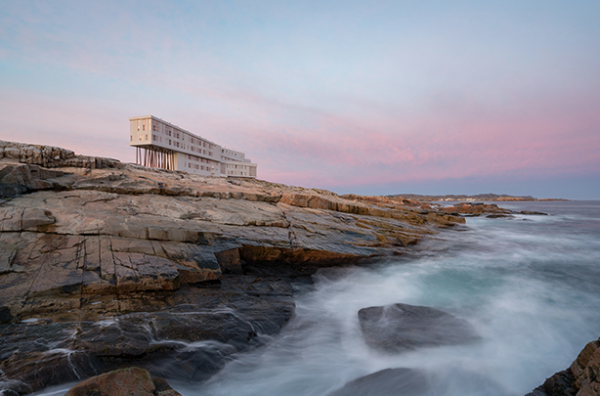
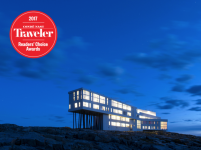 Fogo Island is an outport community: a small, remote coastal settlement unique to the province of Newfoundland and Labrador. Fogo Islanders are people of the sea who have made their living by fishing the frigid and often unforgiving waters of the North Atlantic.
Fogo Island is an outport community: a small, remote coastal settlement unique to the province of Newfoundland and Labrador. Fogo Islanders are people of the sea who have made their living by fishing the frigid and often unforgiving waters of the North Atlantic.
Through the Shorefast Foundation, founded by Fogo Islander and successful entrepreneur Zita Cobb, a spectacular hotel — the Fogo Island Inn — has emerged as the cornerstone of an effort to bolster Fogo’s cultural and economic resilience through place-based social enterprise.
How does Shorefast describe “place-based enterprise”?
All businesses can be social businesses. Business is a system, a social and economic instrument, and a tool that can be used to support place and shape relationships. Done well, business allows all of us to contribute our individual and collective capacities to society.
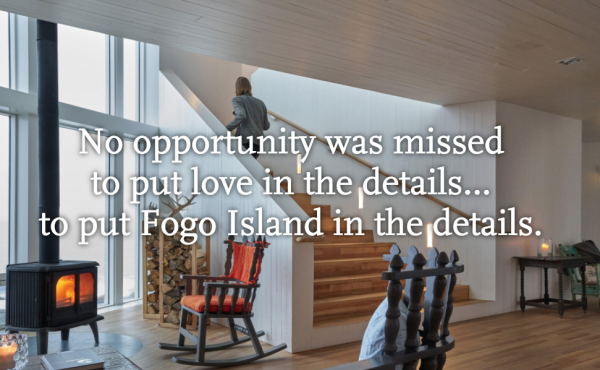
There’s no question the Fogo Island Inn means business. Named the top hotel in Canada for 2017 by Conde Nast Traveller, the Inn attracts guests from around the world, drawn by the striking contrast between its stark modernity, and the splendid isolation of its location.
The Fogo Island Inn was a direct response to a pressing need to find new relevance for traditional knowledge and traditional ways. The Inn was created as an economic engine for Fogo Island, and has provided new employment opportunities that build off of Fogo Islanders’ natural predisposition toward exceptional hospitality.
The Inn is a 100% social business — it was built using philanthropic funds, and all surpluses are returned to Shorefast for reinvestment in the community of Fogo Island. There are no investors seeking a return, and there is no private gain.
While a social enterprise, the Inn’s rates would warm the heart of any for-profit hotelier. Rates (based on a two-night minimum) start at $1,675, and climb to $2,875 per night.
Are There Lessons Here for Other Rural Places?
Clearly not every remote, rural community is going to boast a Mountain Trek or a Fogo Island Inn. But there are some intriguing take-aways from both, in spite of their fundamental structural difference.
The first and most obvious is that remoteness, when it comes to the hospitality sector, can be a virtue. Secondly, it is possible to create high-end destination offerings on a scale that will not impact negatively on often-fragile rural ecosystems and local cultures. These are not huge operations — Mountain Trek accommodates a maximum of 16 guests at a time, while the Fogo Island Inn has 29 guest suites.
Thirdly, local culture can be a valuable commodity. In addition to a little peace and quiet, urban consumers are seeking authenticity of place. Areas like Newfoundland’s outposts, with their rich history and unique culture, and the West Kootenay with its often quirky celebration of art, music, literature, cuisine, spirituality and mountain sports, have much to offer the jaded city dweller.
For rural communities seeking to reignite flagging economies. there may be some valuable lessons to be learned from the Mountain Trek and Fogo Island Inn experiences. While quite different in their structural approaches (one a for-profit business, the other a social enterprise),, both are focussed on “quality over quantity,” offering exclusive — and expensive — experiences for strictly limited numbers of visitors, using their isolation and embrace of local culture as major selling points. Both continue to make significant impacts on the economies and social fabrics of their respective communities, while paying careful attention to ensure their offerings genuinely reflect the places they call home.
